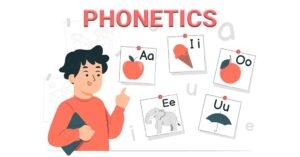
The International English Language Testing System (IELTS) A2 Life Skills exam is specifically designed to evaluate candidates’ abilities in using English for basic communication purposes in everyday situations. This exam is particularly relevant for individuals applying for visas to the UK, where proof of English language proficiency is required for family, spouse, or partner visa applications.
Understanding IELTS A2 Life Skills
The IELTS A2 Life Skills exam focuses on assessing two primary skills:
Listening and Speaking: Candidates are evaluated on their capability to understand simple, everyday spoken language and to communicate effectively in familiar social contexts. This includes engaging in conversations, providing information, and responding appropriately to questions.
Exam Format for IELTS A2 Life Skills
The exam consists of two parts, both of which are designed to simulate real-life scenarios:
Part 1: Speaking and Listening together
Listening: Candidates listen to recordings of everyday conversations between native English speakers. These conversations cover common topics such as travel, hobbies, daily routines, and social activities. Candidates are then asked to answer questions related to the information provided in the recordings.
Speaking: Candidates participate in a structured conversation with the examiner and possibly with another candidate. The conversation covers various topics, where candidates are expected to demonstrate their ability to communicate effectively, share personal experiences, express opinions, and provide relevant information.
Part 2: Speaking
Preparation Tips for IELTS A2 Life Skills
Preparing for the IELTS A2 Life Skills exam requires focused practice and familiarization with the exam format. Here are some tips to help you prepare effectively:
Understand the Exam Format: Familiarize yourself with the structure and requirements of the exam. Practice with sample papers and past exam questions to become comfortable with the types of tasks you will encounter.
Build Everyday Vocabulary: Focus on learning and using everyday vocabulary and expressions that are commonly used in social interactions and daily communication.
Practice Speaking: Engage in regular conversations with friends, language partners, or tutors to improve fluency and confidence in speaking English. Practice discussing various topics and expressing opinions in a clear and organized manner.
Enhance Listening Skills: Listen to a variety of English audio materials, such as podcasts, interviews, and conversations, to improve your listening comprehension skills. Pay attention to different accents and speech patterns.
Mock Exams: Take practice exams under timed conditions to simulate the actual test environment. This will help you develop time management skills and identify areas where you may need additional practice.
Benefits of Achieving IELTS A2 Life Skills
Achieving a satisfactory score in the IELTS A2 Life Skills exam offers several advantages:
Visa Application: It fulfills the English language requirement for certain visa categories to the UK, such as family, spouse, or partner visas.
Improved Communication Skills: A2 level proficiency enables individuals to confidently handle basic social interactions, travel situations, and everyday tasks in English-speaking environments.
Pathway to Further Opportunities: Successfully passing the A2 Life Skills exam can open doors to higher-level language studies, career opportunities, and integration into English-speaking communities.
Conclusion
Preparing for the IELTS A2 Life Skills exam is not just about meeting visa requirements; it’s about developing practical language skills that enhance your ability to communicate effectively in everyday situations. By focusing on improving your speaking and listening abilities and familiarizing yourself with the exam format, you can approach the exam with confidence and achieve your desired results.
In summary, the IELTS A2 Life Skills exam serves as a practical assessment of your English language proficiency and provides a pathway to new opportunities and experiences in an English-speaking world.





